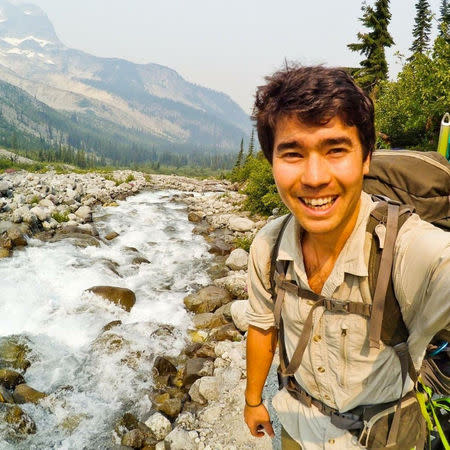Citing disease risk to tribe, group urges halt to hunt for dead American

By Sanjib Kumar Roy and Nidhi Verma
PORT BLAIR/NEW DELHI (Reuters) - A rights organisation urged Indian police on Monday to call off efforts to recover the body of an American missionary believed to have been killed by an isolated tribe on a remote island due to the risk of introducing them to diseases.
John Allen Chau, 26, is believed to have been killed last week after travelling to North Sentinel - part of the Indian archipelago of Andaman and Nicobar in the Bay of Bengal - to try to convert the tribe to Christianity.
Indian police are working with anthropologists and psychologists to see if a plan can be forged to recover the body of Chau, an officer said on Monday.
But Survival International, a body that campaigns for the rights of indigenous tribals, said the attempts were dangerous for the Indian officials as well as the Sentinelese, who face being "wiped out" if any outside diseases were introduced.
"The risk of a deadly epidemic of flu, measles or other outside disease is very real, and increases with every such contact," they said.
The Sentinelese, generally considered the last pre-Neolithic tribe in the world, have violently resisted any contact with outsiders. The Indian government has for years placed the island off-limits to visitors to protect the tribe.
"We are in constant touch with anthropologists and psychologists," said Dependra Pathak, director general of police in the Andaman and Nicobar islands.
"If they suggest any methodology to interact without disturbing them then we can draw (up a) strategy," he said. "At this stage we don't have any plan to confront our Sentinelese."
A group of anthropologists, journalists and activists said in a joint statement that continuing with the efforts to recover Chau's body could lead to further violence and "completely unwarranted loss of life".
"The rights and the desires of the Sentinelese need to be respected and nothing is to be achieved by escalating the conflict and tension, and worse, to creating a situation where more harm is caused," they said.
Chau, who described himself in social media posts as an adventurer and explorer, made several trips to the island by canoe on Nov. 15.
He told fishermen who took him to the island a day later he would not be returning, Pathak said previously.
Seven people who helped Chau reach the island have been arrested.
Separately, Andaman and Nicobar authorities issued a statement on Monday reiterating that the island remained off limits to foreigners as well as Indians after some media reported relaxations of restrictions for visitors.
(Reporting by Sanjib Kumar Roy and Nidhi Verma; Additional reporting by Alasdair Pal and Abhirup Roy; Editing by Euan Rocha and Alison Williams)

